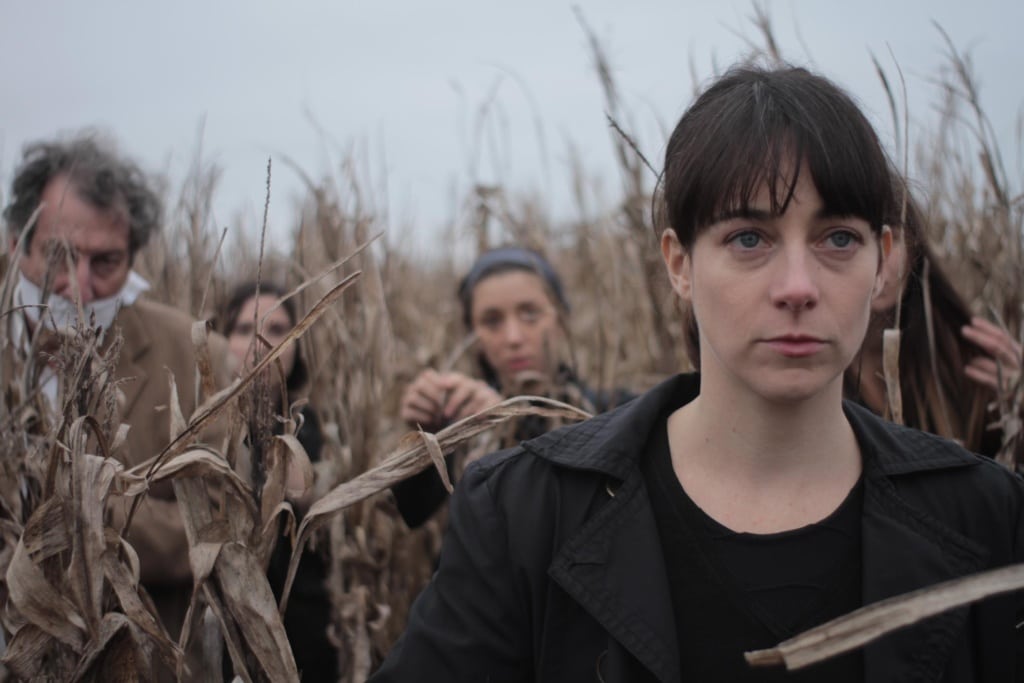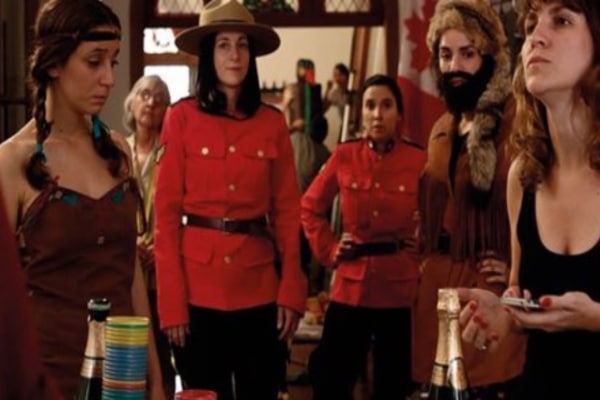The festival will be programming a retrospective called ‘Wild Stories, Extraordinary Stories: two decades of Argentinian cinema’ featuring about twenty titles, among them, ‘The Flower’, by Mariano Llinás, the longest film ever screened at the Valladolid Festival.

Argentina will be the guest country in the 66th edition of SEMINCI. The cinema of the austral country will play a leading role in this year’s Festival with the retrospective ‘Wild Stories, Extraordinary Stories: two decades of Argentinian cinema’ as the main highlight of this celebration.
The selection of films in this retrospective, which is being organized in collaboration with Argentina’s National Institute of Cinema and Audiovisual Arts (INCAA), has been made by film critic Álvaro Arroba, collaborator of SEMINCI and programmer at several festivals, among them the Buenos Aires-based BAFICI.
The line-up of titles will include 15 feature films made by prestigious and award-winning directors, many of them at international competitions like Cannes: ‘The Holy Girl‘ (2004), by Lucrecia Martel; ‘The Dead‘ (2004), by Lisandro Alonso, and ‘XXY‘ (2007), by Lucía Puenzo, who also won the Goya award for best Spanish-language foreign film.
Also awarded, in this case at the Sundance Film Festival, was ‘The Aura‘ (2005), by Fabián Bielinsky, and ‘The Man Next Door‘ (2010), by Mariano Cohn and Gastón Duprat; and Locarno awardees featuring in this retrospective are titles like ‘Back to Stay‘ (2011), by Milagros Mumenthaler, and ‘Two Shots Fired‘ (2014), by Martín Rejtman.
Special mention must be made of ‘The Flower‘ (2018), a film that includes six different stories told over 14 hours and one which took Mariano Llinás ten years to write and direct. It is the longest film programmed at SEMINCI, where festival audiences will be able to watch it in a single screening divided into 3 different sessions. The film has been presented in competitions such as Locarno or BAFICI, among others.
The selection is complete with the following feature films: ‘A Red Bear‘ (2002), by Adrián Caetano; ‘The Blonds‘ (2003), by Albertina Carri; ‘Viola‘ (2012), by Matías Piñeiro; ‘Ghosts of the Road‘ (2013), by José Celestino Campusano; ‘The Sky of the Centaur‘ (2015), by Hugo Santiago; ‘Gilda, I Don’t Regret this Love‘ (2016), by Lorena Muñoz, and ‘The Faculties‘ (2019), by Eloísa Solaas.
As for short films, the retrospective will consist of eight titles, including Juan Pablo Zaramella’s Luminaris, which holds the Guinness World Record for the most awarded short film. Other titles are: ‘Masi, me tiro‘ (2003), by Sebastián Carreras; ‘Prisma‘ (2005), by Claudio Caldini; ‘El mes del amigo‘ (2016), by Florencia Percia; ‘La prima sueca‘ (2017), by Inés María Barrionuevo; ‘El récord‘ (2019), by Daniel Elías; ‘Shendy Wu‘ (2019), by Ingrid Pokropek, and ‘Bajo la superficie‘ (2021), by Pablo Spatola.
The retrospective brings together titles from the Argentine film industry and independent films, and reveals the richest cinematography in registers, tone and colour of any Spanish-speaking country. The reasons for this richness are: The quality of its performers (so very involved in the intense theatre scene in Buenos Aires); the cultural training of its filmmakers (Argentina is the country with the largest number of film schools); the idiosyncratic wealth provided by the directors from the several provinces (each federation, a country); and the apparent ease with which they make up for the lack of resources with unprecedented aesthetic decisions.
The sample, organized with the support of Argentina’s Embassy in Spain, will be accompanied by a publication written by the programmer of the retrospective’s contents. SEMINCI will also dedicate one of its days to Argentina, with a special program including the Argentinian films that compete this year in the Official, Meeting Point and Time of History sections.
Films
- Un oso rojo, de Adrián Caetano (2002)
- Los rubios, de Albertina Carri (2003)
- La niña santa, de Lucrecia Martel (2004)
- Los muertos, de Lisandro Alonso (2004)
- El aura, de Fabián Bielinsky (2005)
- XXY, de Lucía Puenzo (2007)
- El hombre de al lado, de Mariano Cohn y Gastón Duprat (2010)
- Abrir puertas y ventanas, de Milagros Mumenthaler (2011)
- Fantasmas de la ruta, de José Celestino Campusano (2013)
- Viola, de Matías Piñeiro (2012)
- Dos disparos, de Martín Rejtman (2014)
- El cielo del centauro, de Hugo Santiago (2015)
- Gilda, no me arrepiento de este amor, de Lorena Muñoz (2016)
- La flor, de Mariano Llinás (2018)
- Las facultades, de Eloísa Solaas (2019)
Short Films
- Massi me tiro, de Sebastián Carreras (2003)
- Prisma, de Claudio Caldini (2005)
- Luminaris, de Juan Pablo Zaramella (2013)
- El mes del amigo, de Florencia Percia (2016)
- La prima sueca, de Inés María Barrionuevo (2017)
- El récord, de Daniel Elías (2019)
- Shendy Wu: Un diario, de Ingrid Pokropek (2019)
- Bajo la superficie, de Pablo Spatola (2021)



























![Logo Foro Cultural de Austria Madrid[1]](https://www.seminci.com/wp-content/uploads/2024/09/Logo-Foro-Cultural-de-Austria-Madrid1-300x76.jpg)








